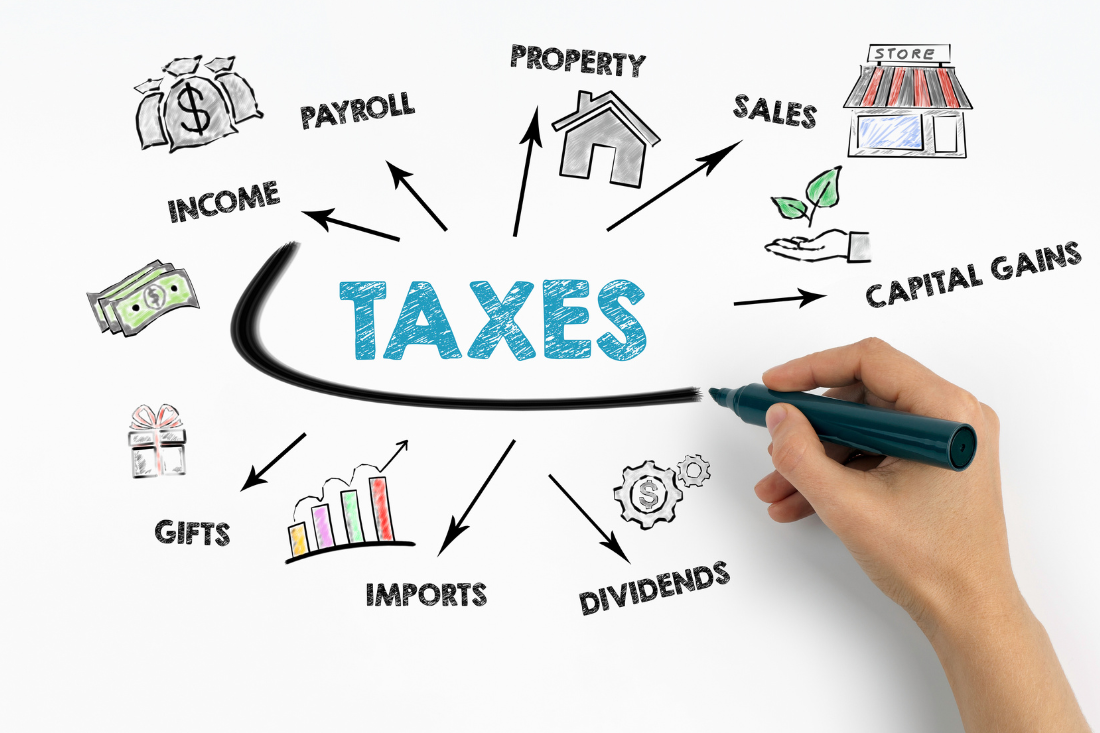20 Tax Deductions for Small Business: from A to Z
- February 13, 2023
- 8 minutes read

Small-business owners often relish the sound of “small-business tax deductions.” Yet, many are unaware of the full range of deductions that apply to their business. Take heart, we’ve created an alphabetized list of tax write-offs for small businesses. And we’re pretty you’ll find a few you aren’t aware of!
But First, How to Claim Tax Deduction as a Small Business Owner
As a sole proprietorship, claiming small-business tax deductions requires the completion of the Schedule C form. This form is used to calculate the taxable profit from your business during the tax year, which is then reported on your personal 1040 form to determine the taxes owed. It’s also important to gather the necessary documentation and expense tracking. Now let’s get into all the tax deductions to take advantage of this tax season!
1. Advertising and Marketing Expenses
You can claim expenses incurred on ordinary advertising and marketing as long as they are business-related. This includes expenses such as billboards, business cards, Yellow Pages advertisements, freelancer fees for designing a business logo, and client appreciation cards.
2. Automobile Expenses
If you use a car for business purposes, you’re generally eligible to deduct any related expenses. However, to do so, you must maintain records that demonstrate its business usage, as well as keep track of your miles driven. Alternatively, you can opt to use the IRS standard mileage rate, which is currently set at $0.58 per mile. If your car is used for both business and personal purposes, you’ll need to allocate your expenses based on the actual miles driven for each purpose. For further guidance, you can refer to Publication 463 on travel, entertainment, gift, and car expenses issued by the IRS.
3. Bad Debt
Unrecovered loans to employees or vendors can be classified as “bad debt” and claimed as a deduction. The key to doing so is to prove that the debt was incurred in a trade or business rather than a personal context. According to the IRS, bad debt is defined as “a loss resulting from the worthlessness of a debt that was either originated or obtained in a trade or business or closely related to your trade or business when it became partially or completely uncollectible.”
4. Business Entertainment
Client entertainment through meals and events can also be claimed as a deduction if it’s deemed essential for your business. However, it’s important to note that most meal expenses are only partially deductible, with a maximum of 50%. Certain types of meals, such as those served during office parties, are fully deductible. To make the most of this deduction, it’s important to retain receipts and clearly document the business purpose of each meal.
5. Child and Dependent Care Expenses
The Child and Dependent Care Credit may be available if you pay for someone to take care of a dependent such as a child or a physically or mentally challenged spouse or other dependent while you work. The person receiving care must be either a child under 13 or a dependent who is unable to care for themselves.
The amount of the credit is based on your income and ranges from 20% to 35% of your eligible expenses, which are capped at $4,000 for the care of one dependent or $8,000 for the care of two or more dependents. The IRS Publication 503 provides additional information on the credit, and to claim it, you must complete Form 2441 and attach it to your Form 1040.

6. Contracted Labor
Do you engage the services of independent contractors or freelancers as part of your workforce? If so, the expenses incurred from hiring contracted labor are fully tax-deductible. It’s important to note that you must furnish a form MISC-1099 to any contract worker who earns $600 or more from you in a given tax year. If you’re paying the worker through a credit card or PayPal, the payment processor is responsible for issuing the worker a form 1099-K.
7. Education
The IRS allows for full deductibility of education expenses that enhance your business and expand your knowledge base. These include seminars, webinars, and classes, transportation costs to these classes, books, and subscriptions to trade publications.
8. Employee Salaries, Benefits, and Gifts
Employee salaries, benefits, and paid time off generally qualify as tax-deductible expenses. Additionally, employee gifts are 100% tax deductible.
9. Tax Deductions for Insurance
You can deduct premiums you pay for various types of business insurance, like employee health insurance and auto insurance for business vehicles.
Self-employed individuals can claim deductions for health insurance premiums for themselves, their spouse, and dependents on Schedule 1, which is attached to their Form 1040. However, if you have the option to enroll in a health plan through your spouse’s employer, you cannot claim these premiums as a deduction for your business.
10. Interest
As a small business owner with a loan, you will likely incur interest payments on the amount borrowed from a lender. These interest payments are generally fully tax deductible if the loan is used to finance business expenses. To take advantage of this deduction, the business owner must be legally responsible for the debt and have a “debtor-creditor” relationship with the lender, meaning the loan must be obtained from a traditional financial institution and not from a friend or family member.
11. Inventory
The cost of inventory or goods sold is generally tax deductible for inventory-based businesses. These include raw materials and product costs (along with freight), storage fees, overhead costs for a factory, and the wages and benefits (including pension or annuity contributions) of workers directly involved in production.
12. Legal and Other Professional Fees
Business-related legal and professional fees, such as those charged by lawyers, accountants, bookkeepers, tax preparers, and online bookkeeping or tax services, are tax deductible if necessary and directly related to your business. However, if any part of the fee is for work of a personal nature, such as creating a will, only the portion related to the business can be claimed as a deduction.
13. Office Supplies and Furniture
Office expenses, such as paper, boxes, and pens, may seem insignificant, but they can add up and are tax deductible. Additionally, office furniture, like chairs and desks, is considered a type of office supply and can be deducted in the same manner as printer paper or cleaning supplies.
14. Rent
The rental payments you make for business space can be claimed as a business expense on your taxes. It is important to note that rent payments made for your home should not be included as a business expense, even if you have a home office, as they can instead be claimed as part of your home office expenses.
15. Rent and Depreciation of Equipment
When you lease equipment or machinery for your business operations, the costs incurred can be fully deductible on your taxes. This includes a wide range of items, such as printing equipment, vans, trucks, and more. Additionally, the depreciation of these assets can be claimed through a Section 179 deduction, allowing you to deduct up to $1,020,000 of the cost of new or used property in service during the tax year. However, these deductions must be claimed over a number of years.
16. Software
The cost of software purchased or downloaded for your business can be considered a deductible expense. These expenses can be reported under the category of “Other Miscellaneous Expenses” in the “Other Common Business Expenses” section of your Schedule C tax form.
17. Start-up Costs
Starting up a small business involves expenses before the business begins to generate income. While these costs are not tax deductions, they are considered capital expenses by the IRS. The IRS considers these capital expenses as investments in the business, which can be deducted over several years. Take a look at sections seven and eight in IRS Publication 535 for a comprehensive overview of expenses related to running a business.
18. Taxes
It may seem odd, but the taxes incurred from operating your business can actually be claimed as deductions. These could include federal, state, and local income taxes, real estate taxes, and sales taxes. Additionally, employer taxes such as the FICA, FUTA, and state unemployment tax contributions made by the employer are completely deductible.
19. Travel
If you often travel for work, it’s worth considering claiming your travel expenses as deductions. In order to qualify as a business expense, the travel must take place outside the city or region where you carry out your business activities. Additionally, you must be away for more than an entire workday. Examples of eligible travel expenses include airfare, tolls, taxi fares, and accommodation costs.
20. Utilities
Utilities used to run your business can be entirely written off as deductions. This includes things like water, electricity, garbage, and telephone services. Please note that if you work from a home office and use a landline phone, only the cost of additional lines is deductible, not the first landline.
Maximizing your tax deductions can result in substantial savings, potentially amounting to hundreds or even thousands of dollars, when it comes time to file your taxes. We hope this list makes your tax season a little brighter and your tax return much bigger!
If you would like to learn more about Promenade, book a demo to see how we can help your business grow.
With Promenade’s all-in-one solution, you can easily get a custom website, sell online, deliver, and have help marketing.
Sources: Bench and NerdWallet



